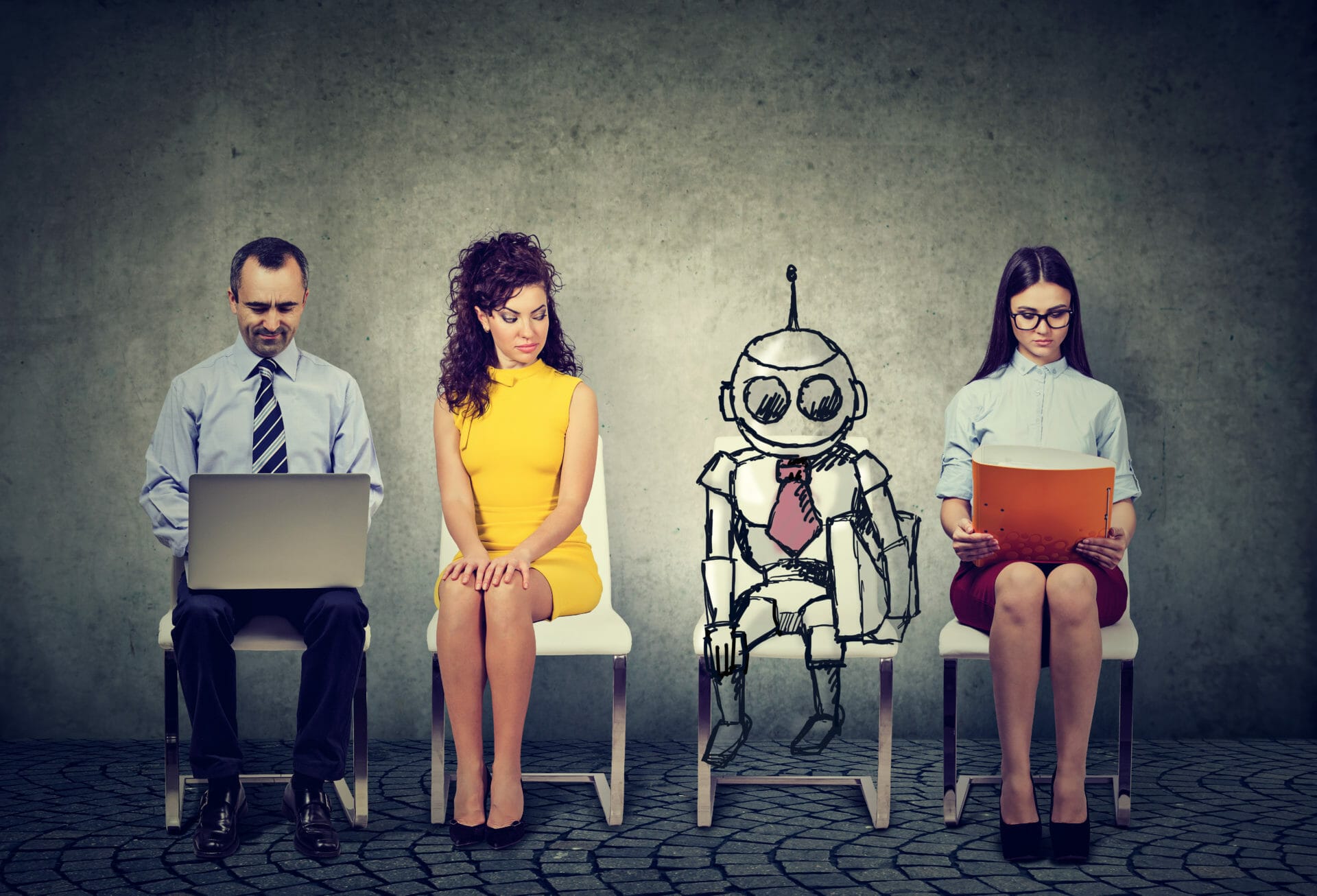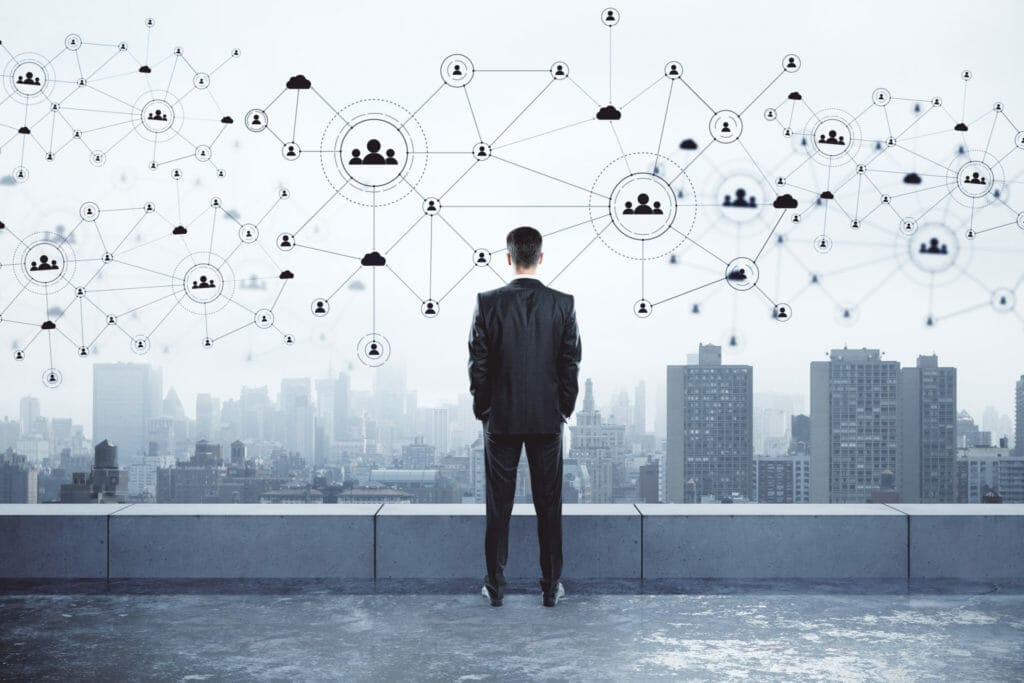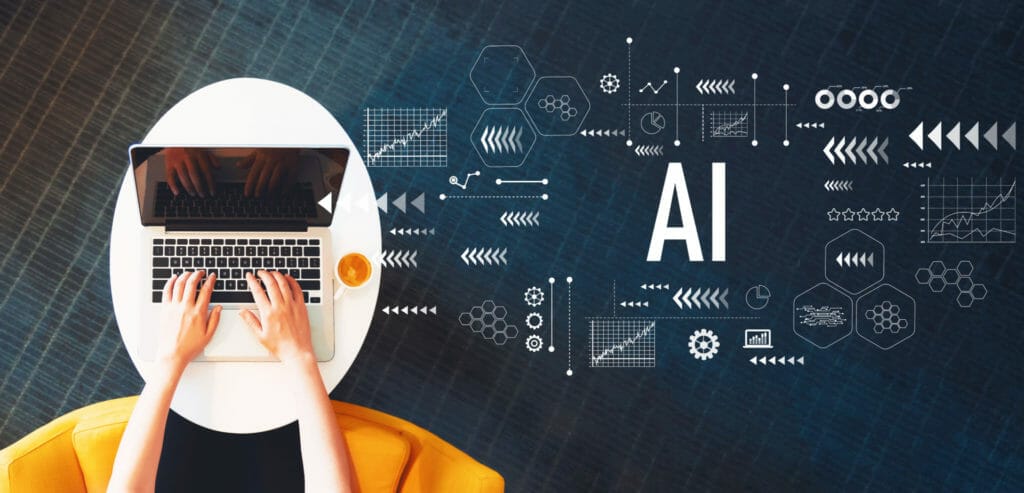Artificial intelligence, Entrepreneurs, Marketing, Online Business, Productivity
Increasing Productivity This 2022 Using Artificial Intelligence in HR
- By Moshe
- No Comments
01 Mar

Increasing Productivity This 2022 Using Artificial Intelligence in HR
Artificial Intelligence is no longer a thing of the future. From Alexa to Spotify to the smart reply function on Gmail, we all use AI programs daily. But did you know that it’s also becoming crucial for increasing HR productivity?
It can aid in recruitment, communications, employee engagement, and training. AI applications can accurately predict trends, diagnose problems, and analyze data. It allows HR teams to make better decisions, thus improving productivity. From recruitment to training to performance analysis, AI can help HR teams every step of the way.
Artificial intelligence and machine learning are already taking the HR world by storm. According to a report by Oracle in 2019, 50% of workers use AI at work, a considerable jump from the 32% in 2018. Considering how fast the tech industry develops, we can assume that the percentage is already higher. The study also found that 64% of workers trust a robot over their manager for advice. Gone are the misconceptions about robots replacing people at work. For more and more people, rather than being a usurper, AI is more like a helpful coworker.
So AI is here to stay, and its use as an HR technology is likely to only increase in the future. Rather than fear this new development, why not see it as an opportunity? AI can improve productivity in the Human Resources field in so many ways. In the rest of this article, we’ll go into the many uses of AI in HR and provide you with concrete examples you can incorporate within your business.
What is HR?
Human Resource teams, commonly referred to as “HR,” are responsible for maximizing employee productivity while protecting the company from any issues within the workforce. In many cases, HR teams have evolved into People teams, focusing on employee demands. Whether it’s compensation and benefits, recruitment, firing, employee engagement or compliance, HR manages it all.
An unhappy workforce directly impacts company performance making HR teams crucial to business success.
Seven Use Cases For AI In HR

Hiring
Recruiting is one of the most crucial areas for Artificial Intelligence in HR. Using AI HR technology, HR managers can better match candidates to jobs. Humans are susceptible to bias, and irrelevant factors may influence them. But an AI program will not be affected by candidates’ race, gender, or the design of their resumes. Instead, it will assess candidates’ skills and experience and make an unbiased decision.
As well as reducing bias, AI programs like MyInterview speed up the process. While it may take one HR manager hours to go through all the candidates’ resumes, an AI program can do it in minutes. It doesn’t mean there is no role for interviews and HR personnel in the hiring process. But it does mean that once a candidate gets to the interview stage, the AI has already deemed them a good match. By speeding up the initial steps, AI allows HR personnel more time to focus on the in-depth work.
AI can also look at aspects of a candidate that a human assessor may not pick up on. One example is the HR technology DeepSense. This AI assesses personalities and behavioral traits to match candidates to jobs. Not only can AI help find the best candidates, but it can help place them in the positions they can be most valuable.
AI also makes the application process faster and more painless for candidates. Applicants only have to input information once into a smart digital form, and the AI will remember it. It’s a process that relieves a level of monotony as candidates do not have to keep repeating themselves.
Communications
AI can help HR teams save time when it comes to communicating with employees. For example, Chatbots are an efficient way to learn about the concerns and wants of employees. Understanding what employees need and desire is difficult and time-consuming without AI. One-on-one conversations take time, and people may not feel free, to be honest when talking face to face. In contrast, a Chatbot can conduct hundreds of discussions simultaneously. Plus, the anonymity of a Chatbot allows employees to voice their desires and concerns freely.
Additionally, AI can help speed up routine communications like filing sick leave or overtime. There is no reason why requesting vacation days should be an arduous process. AI programs such as Talla allow you to automate everyday tasks. Using AI for this kind of thing frees up time for both employees and HR personnel. It results in increased productivity all around – it’s a win-win.
Of course, when it comes to communications, AI is not a replacement for human interaction. Some topics need face-to-face engagement, and others benefit from the personal touch. Older generations are also more likely to respond to direct human communication. It’s more helpful to think of AI and Chatbots as another tool in the HR communications toolkit. It allows companies to make use of many different communications platforms. HR professionals can decide which method will work best for other cases and implement them accordingly.
Employee Engagement
Multiple AI tools can help HR departments boost employee engagement. For example, many programs help managers understand their employees better. Vibe is an algorithm that evaluates employees’ emojis and keywords to determine their emotional state. It offers real-time insight into employee engagement which HR teams can address.
AI communication analysis tools are handy for HR departments. Programs like Kanjoya and ADP Compass provide information about staff morale. They also give valuable suggestions about how to boost it.
AI’s role in Human Resource Management is not about providing solutions. But what it can do is make it much easier for HR professionals to understand their employees. It makes them better able to diagnose problems and come up with solutions. AI programs may provide suggestions, but it’s up to the HR team to decide what to do. This shows that AI and HR technology are not a replacement for HR experts but rather that it aids them to do their jobs better and faster.
Reward Programs
Many companies assign HR departments the job of recognizing and rewarding good performance. Providing appropriate rewards to productive employees can both boost morale and incentivize performance. It also helps maintain employees. According to a 2018 SHRM study, two-thirds of HR professionals say rewarding employees helps their retention.
Unfortunately, in the past, this process was fraught with bias. Even skilled HR professionals are not immune to prejudice when assessing employees. Luckily, many AI tools exist that can get rid of this bias. Part of this is allowing employees to recognize the efforts of their peers. Software packages use channels like Slack and Trello to enable employees to interact. HR teams can then see who staff members value most among their peers.
AI can also provide Human Resources with ongoing assessments of employees’ work. For example, KangoGift helps HR professionals identify employees deserving of appreciation. Saberr is an excellent tool for regular performance check-ins and employee development conversations. HR can then look back on this during year-end reviews to gain an accurate picture. It combats recency bias, in which managers factor recent successes over older ones.
But performance evaluation is not just about rewarding productivity. Another critical use of artificial intelligence in HR is analyzing the work styles of high-performance staff members. AI software such as TrustSphere uses this information to develop practical insights. You can then use these insights to boost productivity in other employees.
Learning And Development Programs
More companies recognize the value of in-house learning and development programs. Not only do these improve performance, but they aid in employee retention too. If people have opportunities to develop skills at work, they are more likely to stay with a business.
AI can help L&D programs prepare employees for new roles and support their individual goals. It can personalize learning based on job role, existing skill set, and future growth objectives. When it comes to face-to-face training, providing many different learning tracks is unrealistic. At best, companies can provide additional training programs for various roles. But AI allows the possibility of unique learning pathways for different employees. It can improve efficiency, reducing the time spent by employees wading through unnecessary modules. It will also enhance learner experience and outcomes.
AI chatbots can also be of service here. By providing answers to frequently asked questions, employees can get quick support.
Workforce Analytics
One area where artificial intelligence in HR shines is workforce analytics. Workforce analytics is not new, but machine learning is now playing a more significant role in it than ever before. For example, AI can predict the impact of particular events or decisions on key performance indicators. It allows managers to avoid problems before they arise.
But workforce analytics is not just for project planning and company strategy. It is also beneficial for HR. For example, it can help predict the impact of things like absences and schedule changes, allowing HR personnel to set up ways to deal with unforeseen challenges.
Metaverse
A metaverse is a digital world that mirrors and augments reality using a VR headset. Think of it as stepping into the internet. By utilizing AI, you can create a metaverse for employees, allowing them to work, collaborate and create virtually.
Mark Zuckerberg, the CEO of Facebook, unveiled his vision for these new-age digital spaces in light of today’s “Zoom fatigue.” Through the power of VR, you can improve your team’s ability to connect remotely. Whether it’s brainstorms, team announcements, hangouts, or recruitment interviews, it allows for better conversations despite physical distance.
Embracing The Future of Artificial Intelligence In HR

The benefits of artificial intelligence for HR departments should be clear by now. AI can improve productivity for both HR teams and their employees, benefiting both parties.
On the HR side, AI improves productivity by:
- Assessing candidates’ resumes without bias
- Finding candidates with personality traits that fit the company and position
- Learning about employee’s wants, needs, and concerns
- Automating processes like filing for sick days
- Discovering high-performing employees
- Assessing employees on an ongoing basis
- Providing tailored learning and development programs
- Providing support for common questions
- Understanding employees’ emotional state
- Determining staff morale and suggesting ways to boost it
On the employee side, AI helps with productivity by:
- Making the application process quicker and less repetitive
- Speeding up routine communications
- Setting up incentives from AI-based rewards programs
- Creating training and development more tailored to each employee
- Using insight on high-performing employees to boost general productivity
Get Started!
There are already so many ways that artificial intelligence in HR boosts productivity. And this is only the tip of the iceberg! AI technologies are still developing at an alarming rate. In the next few years, the number of HR technologies using AI will likely increase exponentially. Plus, their efficiency and effectiveness will only improve over time.
Do not let your HR team get left behind by missing out on the uses of artificial intelligence. Of course, there will always be a place for human HR personnel. A machine cannot do everything, and real people are still central to HR. It’s called Human Resources, after all! But there are many things that AI and HR technology can do much faster and more effectively than humans. Failure to implement AI will limit productivity and lead to higher costs in the long run.
Even so, a one-size-fits-all approach to artificial intelligence in HR is unhelpful. One AI program may be ideal for one company but not useful for another. Companies and HR teams should work together to create a personalized approach to AI in HR. In this way, they can continue to adapt to the demands of a changing world and workforce.
Helping thousands of people to automate their dropshipping business. Skilled in Marketing Management, Advertising, and eCommerce.
Recent Posts
 Successful Dropshipping Techniques To Succeed In Dropshippin…April 15, 2024
Successful Dropshipping Techniques To Succeed In Dropshippin…April 15, 2024 5 Best Practices For Effective Inventory ManagementApril 8, 2024
5 Best Practices For Effective Inventory ManagementApril 8, 2024 How Many Products Should I Start With Dropshipping?April 7, 2024
How Many Products Should I Start With Dropshipping?April 7, 2024 Know the Best Product Research Tools for DropshippingApril 4, 2024
Know the Best Product Research Tools for DropshippingApril 4, 2024 Wix Dropshipping: The Ultimate Guide to Starting a Thriving …April 3, 2024
Wix Dropshipping: The Ultimate Guide to Starting a Thriving …April 3, 2024





Moshe